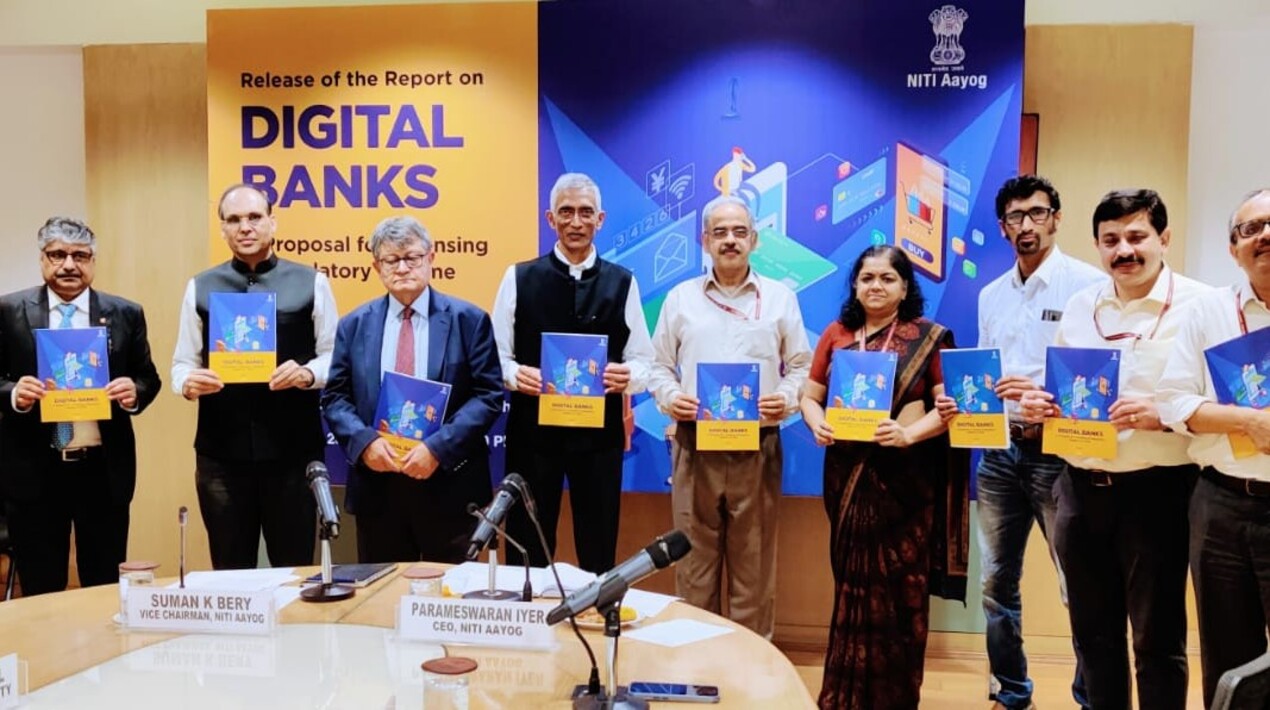
The country’s think tank, the National Institution for Transforming India (NITI Aayog), recently released a report outlining a template and roadmap for a licensing and regulatory regime for digital banks. It focuses on avoiding regulatory or policy arbitrage and offers a level playing field to incumbents and competitors. It suggests the introduction of a restricted Digital Business bank licence and a restricted Digital Consumer Bank licence.
The report was created through inter-ministerial consultations. Last year, NITI Aayog released a discussion paper on the subject for wider stakeholder consultations. Comments received from 24 organisations were examined and have been suitably addressed in the final report.
According to a press release, given the need for leveraging technology effectively to cater to the needs of banking in India, the report studies the prevailing gaps, the niches that remain underserved, and the global regulatory best practices in licensing digital banks. The report recommends a carefully calibrated approach, comprising the following steps:
- Issue a restricted digital bank licence to an applicant (the license would be restricted in terms of volume/value of customers serviced and the like).
- Enlist the licensee in a regulatory sandbox framework enacted by the Reserve Bank of India (RBI).
- Issue a ‘full-scale’ digital bank licence (contingent on the satisfactory performance of the licensee in the regulatory sandbox, including salient, prudential, and technological risk management).
The report also maps prevalent business models in the domain. It highlights the challenges presented by the ‘partnership model’ of neo-banking, which has emerged in India due to a regulatory vacuum and the absence of a digital bank licence.
The methodology for the licensing and regulatory template offered by the report is based on an equally weighted ‘digital bank regulatory index’. This comprises four factors: entry barriers, competition, business restrictions, and technological neutrality. The elements of these four factors are then mapped against the benchmark jurisdictions of Singapore, Hong Kong, the United Kingdom, Malaysia, Australia, and South Korea.
Over the past few years, India has made rapid strides in furthering financial inclusion through initiatives like the Jan Dan-Aadhar-Mobile (JAM) trinity and Aadhaar cards. However, credit penetration remains a policy challenge, especially for the nation’s 63-million-odd micro, small and medium enterprises (MSMEs) that contribute 30% to GDP, 45% to manufacturing output, and 40% to exports.
The country has taken steps towards operationalising its own version of ‘open banking’ through the Account Aggregator (AA) regulatory framework enacted by RBI. Once commercially deployed, the AA framework is envisaged to catalyse credit deepening among hitherto under-served groups.
Meanwhile, digital payments have become increasingly popular, the Unified Payments Interface (UPI) recorded over 4.2 billion transactions worth IN ₹7.7 trillion (US $96.4 billion) in October 2021. The success that India has witnessed on the payments front is yet to be replicated when it comes to the credit needs of its MSMEs. The current credit gap and the business and policy constraints reveal a need for leveraging technology effectively to cater to these needs and bring the under-served further within the formal financial fold.
















